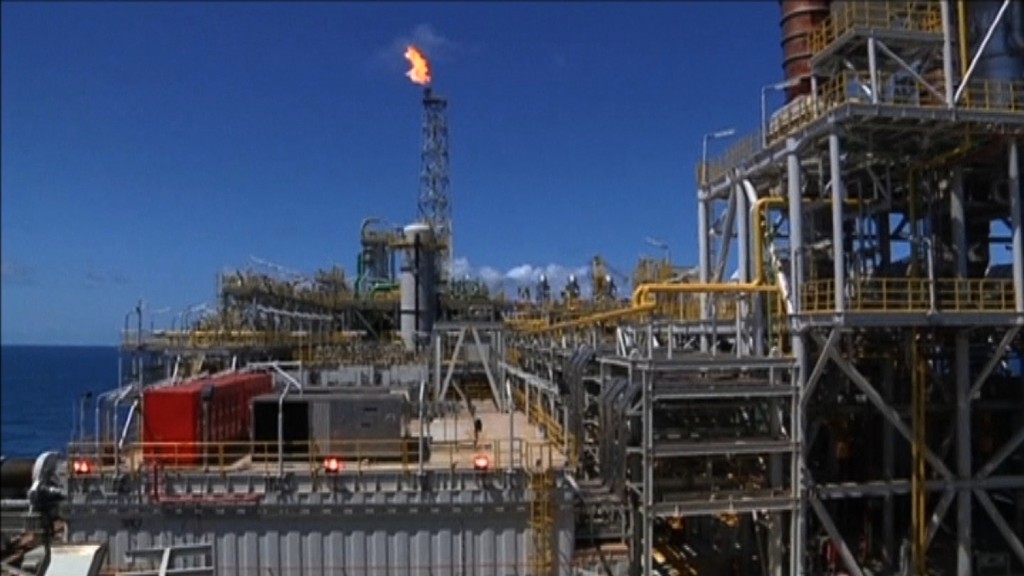
Brazil just got more bruising news.
Its economy fell deeper into recession between July and September, shrinking 1.7% from the previous quarter, the government announced Tuesday. It's Brazil's third consecutive quarter of contraction, making it the country's longest recession since the 1930s.
Brazil, the largest economy in Latin America and eighth largest worldwide, has gone bust this year. The global economic slowdown has hurt the country badly, but Brazil's worst problems are self inflicted.
"It's worse than people thought," says Brian Winter, vice president at Council of the Americas. "Almost nobody believes in Brazil right now. That's a scary situation to be in."
Brazil's economy has suffered from the slowdown in commodities prices for things like oil, iron and copper. Brazil rapidly increased its exports to China over the past decade. That means the slowdown in China is extra painful for Brazil.
Inflation in Brazil rose over 10% -- the highest in 12 years -- in October, according to the government. Unemployment rose to 8.9% in Brazil during the third quarter, up from 6.8% a year ago.
No wonder Brazilians are keeping their wallets shut tight. Household spending fell 4.5% during the quarter.
Related: Brazilian CEO arrested in Petrobras probe
Brazil's currency, the real, is the worst performing currency among major emerging markets. Its down about 31% against the dollar so far this year.
It's important to remember that other countries are dealing with similar problems but are getting much different results. Colombia, Peru and Chile are all commodity-driven and saw their currency lose value this year, but their economies are still growing.
At the core of Brazil's recession is the unprecedented scandal at the government-run oil company Petrobras. Over a year ago, investigators unveiled a massive bribery scheme between construction contractors and Petrobras officials, including government leaders.
Investors had already been spending less in Brazil before Petrobras erupted, but that sped up the flight of investors out of the country. Investment in Brazil has declined for nine straight quarters.
"[Petrobras] has certainly had a big impact on investment," says Edward Glossop, emerging market economist at Capital Economics, a research firm. The economic news Tuesday "made for extremely grim reading."
Related: America's 'smart money' is getting burned in Brazil
Just last week, authorities arrested one of Brazil highest-ranking senators, Delcidio Amaral and the CEO of Brazil's largest independent investment bank, Andre Esteves, for trying to silence a key witness in the investigation. Esteves resigned from BTG Pactual Sunday.
Several other business leaders and politicians have been arrested too.
The Petrobras scandal has spooked foreign investors. Brazil's main stock index, Bovespa, is down about 27% since the scandal first erupted in September 2014.
Many Brazilians have called for the impeachment of President Dilma Rousseff, who only has a 10% approval rating, according to polling company Datafolha. So far, Rousseff has resisted those calls.
"This is like their Watergate moment," says Chris Probyn, chief economist at State Street Global Advisors. Brazil is in "political paralysis."


